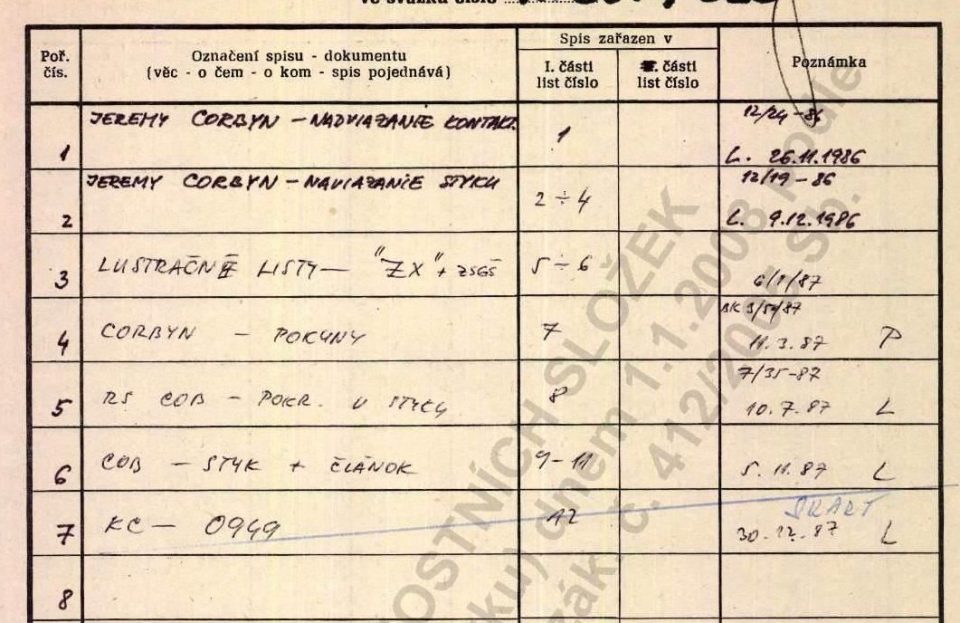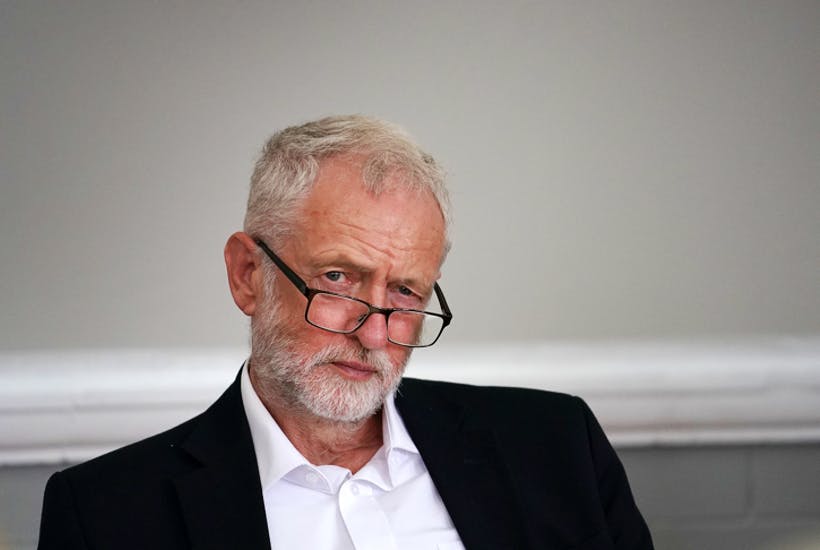On Thursday morning The Sun published startling allegations against Labour leader Jeremy Corbyn, claiming he made contact with a Czechoslovakian spy in the 1980s. According to the article, Corbyn met Lt. Jan Dymic at least three times in 1986, with two of those meetings at the House of Commons. In these meetings, Corbyn is supposedly providing information to Dymic about the arrest of an East German spy by MI5. The paper also claims to have documents in which Corbyn is listed as official source by Czech authorities, and is even given his own nickname, ‘COB’.
A Labour spokesperson has strongly denied the allegations, calling them an “entirely false and ridiculous smear”. He went on to state that while Corbyn, along with many other MPs, held meetings with diplomatic staff from various countries, he has never knowingly met with a spy, nor anyone called Jan Dymic.
 A Czechoslovakian file obtained by The Sun outlining supposed meetings with Corbyn (Source: The Sun)
A Czechoslovakian file obtained by The Sun outlining supposed meetings with Corbyn (Source: The Sun)
It is important to remember that these allegations have the potential to be particularly damaging to Corbyn by tying him to left-wing extremism. Czechoslovakia was of course a communist country, and a member of the Warsaw pact, with close ties to the Soviet Union. Evidence of collusion between Corbyn and Czechoslovakian agents would further fuel criticisms levelled at the Labour leader by those accusing him of being a far-left radical with links to authoritarian regimes. This is a weakness that Corbyn’s political rivals have taken advantage of before, one which has certainly set back his popularity among older voters with strong memories of the Cold War and the ideological struggle it entailed.
However, in the long run this story is unlikely to have much traction, particularly with Labour-leaning voters, when its explosive allegations are unpacked. It is definitely plausible that Corbyn met with a Czechoslovakian spy, yet if this is the case it would almost certainly have been one posing as diplomatic staff. As the Labour party statement pointed out, it was not uncommon for MPs to meet diplomatic staff, and there would likely have been no way to know the background of these so-called diplomats for sure.
 Jeremy Corbyn’s office has responded angrily to the allegations (Source: The Spectator)
Jeremy Corbyn’s office has responded angrily to the allegations (Source: The Spectator)
It is also hard to imagine what useful information Corbyn could possibly have given a foreign agent. He was a left-wing backbencher who had only recently been elected, representing a party that had long been in opposition. We must ask how and why anyone with important and sensitive information about national security would share it with him of all people. Indeed, The Sun’s article states the information he provided on the arrest of the East German spy was through an article he showed them from the Sunday People newspaper – hardly giving away state secrets. Among the other revelations levelled against him in this story is the Czechoslovakian report’s description of Corbyn’s views as – hold on to your hats – “negative towards USA, as well as the current politics of the Conservative government”, at a time when Ronald Reagan and Margaret Thatcher were at the peaks of their respective political careers. You probably didn’t need a secret dossier to work out Corbyn wasn’t a fan of theirs.
There may be a case to be made that Corbyn was naïve to hold these meetings at all. As some have pointed out, meeting any embassy staff below the position of ambassador, particularly from countries with an uneasy relationship with the UK, ran the risk of being caught out. This may prove to be valid, depending on whether more information about the nature of these meetings comes to light. Yet the point is that at present all this story will do is make those already hostile to Corbyn become even more so. While failing to unsettle his supporters. In such a strongly polarised country as the UK is at present, it will take more than vague rumblings of espionage to sway the Labour-sympathetic electorate.


